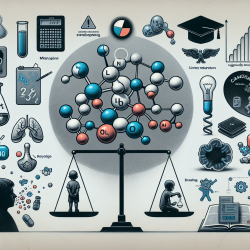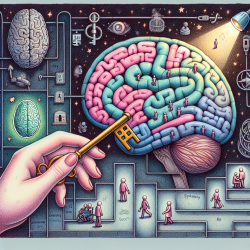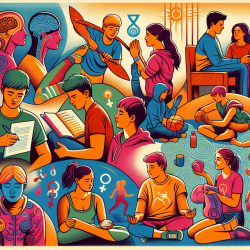Introduction
In the realm of speech-language pathology, the early diagnosis and intervention of hearing loss in children is paramount. According to a recent study titled "Next-generation sequencing improves precision medicine in hearing loss" by Imizcoz et al., published in Frontiers in Genetics, Next-Generation Sequencing (NGS) is proving to be a game-changer in the precision diagnosis of hearing loss. This blog post will explore the implications of this research for practitioners, emphasizing the importance of integrating NGS into clinical practice to enhance outcomes for children with hearing loss.
The Power of Next-Generation Sequencing
NGS technology allows for the comprehensive analysis of genetic variants associated with hearing loss, significantly reducing the time between onset and diagnosis. The study by Imizcoz et al. involved sequencing 171 nuclear and 8 mitochondrial genes in 155 Spanish individuals with hearing loss, achieving a genetic diagnosis in 34% of the cases. This breakthrough demonstrates the clinical utility of NGS panels in identifying pathogenic variants, including single nucleotide variants, indels, and copy number variants.
Implications for Practitioners
For speech-language pathologists and audiologists, the integration of NGS into clinical practice offers several benefits:
- Early Diagnosis: Early identification of genetic causes of hearing loss enables timely interventions, which are crucial for language and cognitive development.
- Precision Medicine: NGS provides detailed insights into the genetic etiology of hearing loss, allowing for personalized treatment plans tailored to the individual needs of each child.
- Comprehensive Screening: NGS can be incorporated into newborn screening protocols, ensuring that genetic causes of hearing loss are identified as early as possible.
- Family Counseling: Genetic diagnosis can inform families about recurrence risks and guide them in making informed decisions about future pregnancies.
Encouraging Further Research
While the study by Imizcoz et al. highlights the potential of NGS, it also underscores the need for ongoing research. Practitioners are encouraged to stay informed about the latest advancements in genomic technologies and to advocate for the inclusion of NGS in standard diagnostic protocols. Collaboration with geneticists and other healthcare professionals is essential to maximize the benefits of NGS for children with hearing loss.
Conclusion
The adoption of NGS in the diagnosis of hearing loss represents a significant step forward in precision medicine. By embracing this technology, practitioners can improve outcomes for children, ensuring they receive the interventions they need to thrive. As we continue to explore the genetic underpinnings of hearing loss, the role of NGS will undoubtedly become even more critical in shaping the future of pediatric audiology.
To read the original research paper, please follow this link: Next-generation sequencing improves precision medicine in hearing loss.










